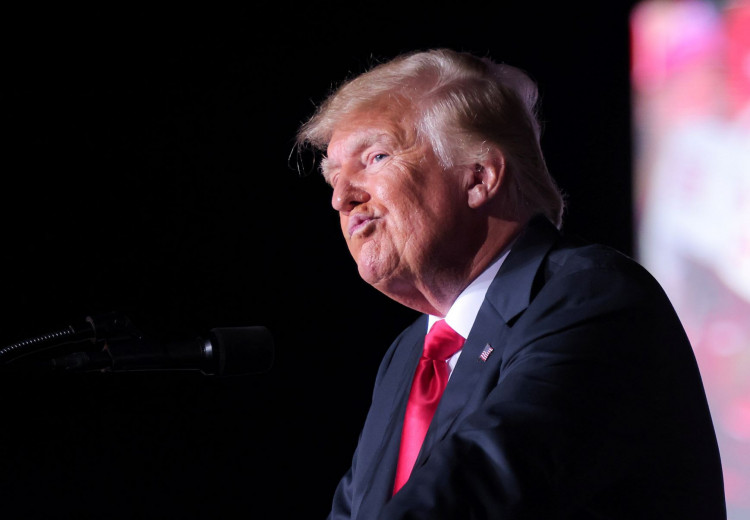In an unexpected turn of events fraught with legal and political implications, former President Donald Trump abruptly exited the courtroom during the climactic moments of E. Jean Carroll's ongoing defamation damages trial. This incident unfolded as Carroll's attorney, Roberta Kaplan, was presenting her closing arguments, accusing Trump of perpetuating defamatory statements against Carroll, who has publicly accused him of sexual assault.
U.S. District Judge Lewis Kaplan, presiding over the case and not related to Roberta Kaplan, remarked on the record, "The record will reflect that Mr. Trump just rose and walked out of the courtroom." This dramatic departure came amidst Kaplan's assertions that Trump "thinks with his wealth and power he can treat Ms. Carroll how he wants and will suffer no consequences."
Roberta Kaplan's closing arguments were pointed and poignant, aiming to underscore the gravity of Trump's alleged defamation. "Ms. Carroll did not make it up, the sexual assault happened, and his denials were all complete lies," she stated, highlighting the former president's dismissal of Carroll's allegations as a "con job."
The trial, which captivates not only due to its high-profile defendant but also because of its timing amidst Trump's reelection campaign, has become a focal point for discussions on defamation, truth, and accountability. Trump's legal battles, including this trial and his New York fraud case, coincide with critical moments in his political journey, adding layers of complexity to the proceedings.
In her plea to the jury, Roberta Kaplan emphasized the need for a substantial punitive damages award as a deterrent against future defamatory actions by Trump. She referenced Trump's own deposition where he boasted about the worth of his estates, using these claims to illustrate his capacity to pay significant damages. "He could pay a million dollars a day for ten years and still have money in the bank," she argued, underscoring the financial aspect of the punitive measures sought.
Trump's defense, led by attorney Alina Habba, maintained that Trump was merely expressing his "truth" when he denied Carroll's accusations. However, this defense strategy encountered obstacles, notably when Judge Kaplan struck Trump's denials from the record, as Trump had already been found liable for the attack in a separate trial.
Habba's attempts to cast doubt on Carroll's allegations and the resultant emotional distress were met with skepticism and rebukes from the judge, who at one point warned Habba of "consequences" for continuing to violate court orders. Despite these challenges, Habba argued, "President Trump should not have to pay for their threats. He does not condone them. All he did was tell his truth."
The courtroom dynamics, punctuated by Trump's abrupt exit and subsequent return, reflect the broader societal and legal challenges in addressing defamation intertwined with sexual assault allegations. As the jury deliberates on the damages, the outcome of this trial could have far-reaching implications for public discourse on accountability, especially for public figures entangled in legal and ethical controversies.
The resolution of Carroll v. Trump not only holds personal significance for the individuals involved but also serves as a litmus test for the judicial system's handling of defamation cases in the context of sexual misconduct allegations. With the world watching, the verdict in this case could send a powerful message about the consequences of defamation and the value of truth in the public sphere.






